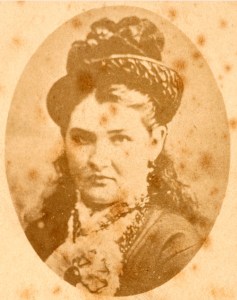
BackStory: Six Questions with Lourdes Mackey
Author of A Despicable Article
What inspired you to write ‘A Despicable Article’?
I was doing some research on convicts transported to Van Diemen’s Land and came across Red Kelly – Ned Kelly’s father, who had been transported for stealing a pig. I became interested in the women in Red’s life, especially in his daughter Kate.
What is your favourite pieces of historical flash, prose poetry or hybrid work? What do you like about them?
Birdie, Nuala O Connor’s collection of historical flash is masterful. She pinpoints moments in history and with her poetic language and skilful use of detail builds plot, character and setting and nails it all in a paragraph or two. I love Carys Davies’ work. Though not a flash writer per se, I believe that her short stories display many ‘flash features.’ Her writing is spare and precise and while some of her short stories may take only a few minutes to read, they remain in the mind for a quite a while.
Who are your favourite historical fiction writers and why?
Joseph O Connor’s Star of the Sea, set against the backdrop of the Great Famine, is, for me, a work of genius. As is Toni Morrison’s Beloved, published in 1987 but still relevant in today’s America, as the horrible past of slavery lingers. Morrison writes with such a verbal authority that she absolutely nails the colloquial, something I try to emulate here with Kate Kelly. Laura McKenna’s debut novel Words to Shape my Name also has this verbal authority – expertly interweaving four distinct voices into a symphonic narrative. Reading Kate Grenville’s Australian trilogy helped my understanding of life in 19th century Australia. Grenville’s beautifully written Secret River resounds with a metaphor of the evils of colonialism.
How much research did you do while writing and editing this piece? Did you discover anything that surprised you?
While I already knew something of the Kelly Gang, I knew nothing about Kate and so I read anything that I could find on her. However, her voice escaped me until I read her brother Ned’s Jerilderie Letter and it immediately came to me. What surprised me was the unmistakable Irish voice in the Jerilderie Letter: Irish language construct, exaggeration, name-calling, terms of abuse, and religious invocation are all symbols of the Irish oral tradition and are used to great effect in the Jerilderie Letter. I researched Australian slang to ensure my slang words were in use at that time. Also, I studied maps of Victoria, to learn the placenames.
What is your favourite part of the writing process? Your least favourite?
I find free writing a challenge. I need to allow whatever is churning in my head to form somewhat before I can sit and type. What I really hate is when I read back on what I’ve written and realize that it’s not what I wanted it to be. I love the research even if it does send me down rabbit holes. I also enjoy the edit, chiselling away like a sculptor until all that’s left is that desired piece.
What, if anything, do you have in common with your main character?
Scratch back through the generations to the early 19th century and you will find us both on a patch of land in rural Ireland, speaking Irish.
Lourdes Mackey is a regular contributor to RTE radio’s Sunday Miscellany. Her work has been published in The Irish Times, The Irish Examiner and Cork Words 2. Her story on Charlotte Despard is included in the UEA’s Sufragette Stories. Her short fiction has been listed in the Penguin Ireland Short Story Competition, the From the Well Short Story Award and the Colm Toibín International Short Story Competition. She lives in Cork.
Photograph believed to be of Kate Kelly ca. 1873-1878 by E. G. Tims, Australian Photographic Co., courtesy of Mitchell Library, State Library of New South Wales (call number P1/873, identifier npAdEa61).
